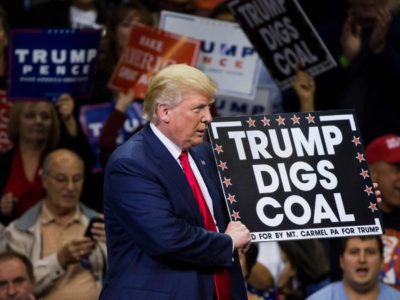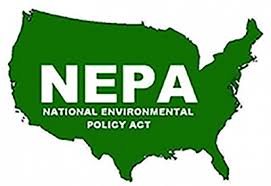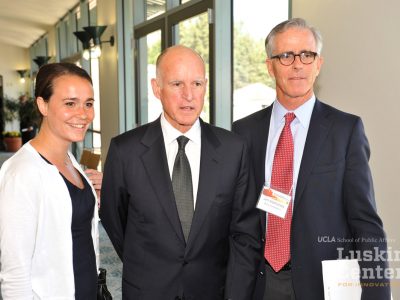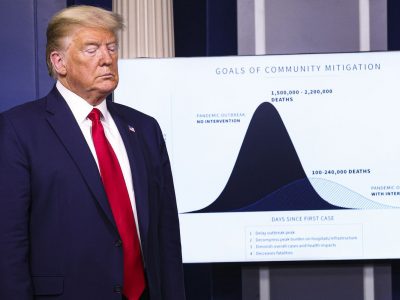Beat the Heat
As Angelenos swelter in historic heatwave, city and county governments seek to cool vulnerable residents
Wildfires sparked by dry lightning storms across California this week are an ominous cap to the state’s historic heat emergency, adding hazardous air quality and evacuation orders to the burdens of the COVID-19 pandemic and economic crisis. Fire risk aside, the heat wave is now entering its most deadly phase. Nationwide, heat kills more Americans than any other weather-related hazard, with 9,000 heat-related deaths recorded from 1979–2014. As many as 450 Calif...
CONTINUE READINGPandemic Lessons in Governance
What have we learned about dealing with mega-risks?
The response to the COVID-19 pandemic has driven home some lessons about governance. Those lessons have broader application — for instance, to climate governance. We can't afford for the federal government to flunk Crisis Management 101 again. Here are five key lessons: 1. Effective leadership from the top is indispensable. Major problems require action by multiple federal agencies. These agencies need help coordinating; they may also need to be pushed into cha...
CONTINUE READINGCoal Takes a Nosedive
Despite Trump's efforts to save it, the most environmentally destructive fuel is fading quickly.
In the 2016 election, Trump pledged to save coal. Since then, his Administration has pulled out all the stops in this effort, including repeal of dozens of environmental regulations. All for naught. In 2021, U.S. coal use will be 30% below what it is when Trump took office. Coal's immediate situation is even worse, due to the coronavirus (which, of course, Trump has done little to halt). The Energy Information Agency says that U.S. coal use will be down 26% in 202...
CONTINUE READINGEnforcing NEPA’s Forgotten Mandate
The courts have failed to enforce a core requirement of NEPA. That leaves the White House.
The Democrats have adopted an ambitious platform for environmental protection, full of innovative legislative initiatives. Here's another idea Biden and Harris should consider, making use of the oldest of the modern environmental statutes. The National Environmental Policy Act (NEPA) is best known for requiring environmental impact statements. While they have enforced that requirement, the courts have declined to enforce another of the statute’s core requirements:...
CONTINUE READINGAutomakers Love to Use the Great Outdoors to Sell Cars That Pollute National Parks
Auto companies continue campaign against progress on vehicle pollution
At the top of Franklin Pass last week, 11,710 ft above sea level and deep in Sequoia National Park, I stopped to catch my breath. There’s no doubt the altitude was affecting me, but looking back towards the thick inversion layer sitting over the western San Joaquin Valley, I had to wonder to whether pollution from the 2003 Toyota Camry that got me to the trailhead – and from the many thousands of cars and trucks humming below – was playing a part in my breathle...
CONTINUE READINGAnother form of environmental justice: updating species names
As Bird Names for Birds puts it, honorific names are "verbal statues"
On August 7, the American Ornithological Society's North American Classification Committee, the body in charge of official taxonomy and common name choices for North American birds, changed the name of the McCown's longspur to the thick-billed longspur. No big deal, you might say -- the names of birds, and other species, are changed frequently. But this time it is a big deal, because of the reason for the change. Usually changes respond to reconsideration of ta...
CONTINUE READINGRIP Jim Mahoney, Climate Champion At Bank Of America
Financial executive helped launch UC Berkeley/UCLA Law "Climate Change and Business Initiative"
Jim Mahoney was perhaps an unlikely climate hero. A senior Bank of America and FleetBoston Financial executive for 25 years who tragically passed away this past weekend at the age of 67 (the result of complications from injuries he sustained in a bicycle accident last year), Jim's work focused on global corporate strategy and public policy for a major financial institution. Climate change would have been just one component of his portfolio of issues affecting banking...
CONTINUE READINGTrump Finds His Medical Rasputin
The newest addition to Trump's coronavirus task force is a faux expert who just happens to share all of Trump's views.
President Trump has added a new member to his coronavirus task force, Dr. Scott Atlas. It's no wonder that Trump loves Dr. Atlas, a retired Stanford radiologist who frequently appears on Fox. Atlas thinks "we are committing national suicide" if we continue serious health precautions against the coronavirus. Here are more of Dr. Atlas's dubious ideas: Don't worry about old people. The lives of the elderly should be given little weight in policymaking; only a p...
CONTINUE READINGThe Draft Democratic Platform and the Environment
The Democrats are promising bold climate action but not committing to details.
The Republicans have decided not to update their 2016 platform, but the Democrats now have a draft of their 2020 platform. The platform essentially calls for aggressively moving beyond Obama's actions (and eliminating Trump’s). For those who are in a rush, I'll start with the takeaways. Key Points Here are some of the most important aspects of the 2020 Platform: The 2020 Platform goes well beyond the 2016 Platform, which itself went further than the Obama Adm...
CONTINUE READINGWhat Will Harris’s Nomination Mean for the Environment?
She's been outspoken on climate and EJ issues, but her core interests may be elsewhere.
Kamala Harris has taken some strong positions on climate change and environmental justice. Her nomination signals the extent to which the Democratic party now embraces those issues. However, to the extent one can judge from her public record, her highest priority interests have been elsewhere during her time in the Senate. While campaigning for the presidential nomination, she released a very ambitious $10 trillion climate plan. It called for a carbon neutral econ...
CONTINUE READING












